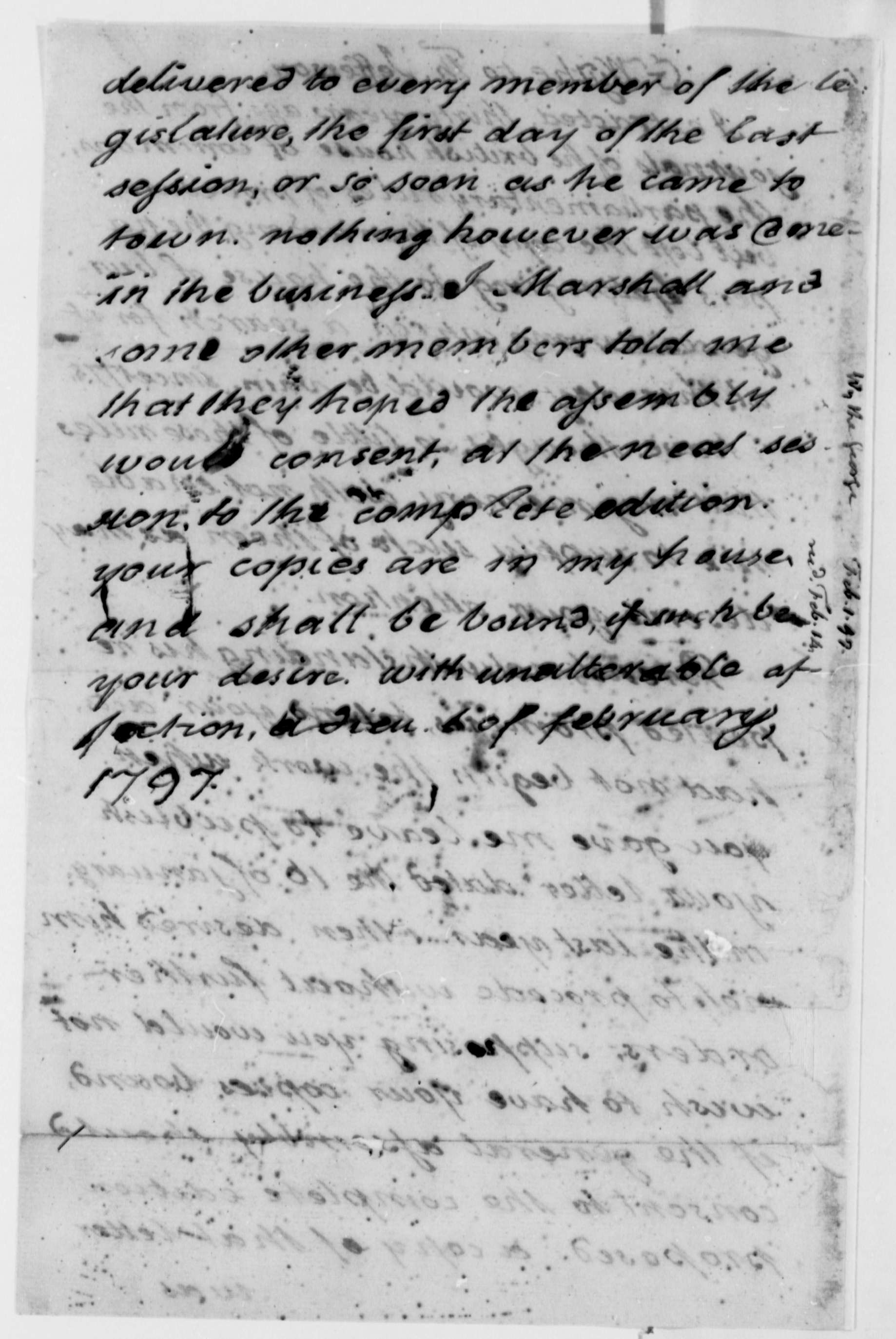Wythe to Thomas Jefferson, 1 February 1797
George Wythe, responding to Thomas Jefferson's letter, regrets to inform Jefferson that the notes he has on the parliamentary rules of procedure from the journals of the British House of Commons are among papers belonging to the House of Burgesses and it would be near impossible to find them. Wythe says that he decided to have the bookbinder stop binding Jefferson's personal copies in case the general assembly ultimately decided to have a copy of a complete edition printed. However, if Jefferson actually does want his personal copies bound, they are being kept at Wythe's home. He lets Jefferson know that a copy of his letter from January 16 has been delivered to each member of Virginia's legislature and the general assembly will make a decision at their next session.

"Wythe to Thomas Jefferson, 1 February 1797, pg 1." Image from the Library of Congress, The Thomas Jefferson Papers.
Contents
Letter text
Page 1
I extracted, thirty years ago, from the journals of the british house of commons, the parliamentary rules of procedure, but left the copy of them among the papers belonging to the house of burgesses, among which a search for it at this day would be vain. since 1775 i have thought so little of those rules that my memory doth not enable me to supply such of them as may deserve your attention.
Brend, notwithstanding his repeated promises, to bind your acts, had not begun the work when you gave me leave to publish your letter dated the 16 of january, in the last year. i then desired him not to procede without further orders; supposing you would not wish to have your copies bound, if the general assembly should consent to the complete edition proposed. A copy of that letter was
Page 2

"Wythe to Thomas Jefferson, 1 February 1797, pg 2." Image from the Library of Congress, The Thomas Jefferson Papers.
delivered to every member of the legislature, the first day of the last session, or so soon as he came to town. nothing however was done in the business. J. Marshall and some other members told me that they hoped the assembly would consent, at the next session, to the complete edition. your copies are in my house, and shall be bound, if such be your desire. with unalterable affection, adieu. 1 of february, 1797.